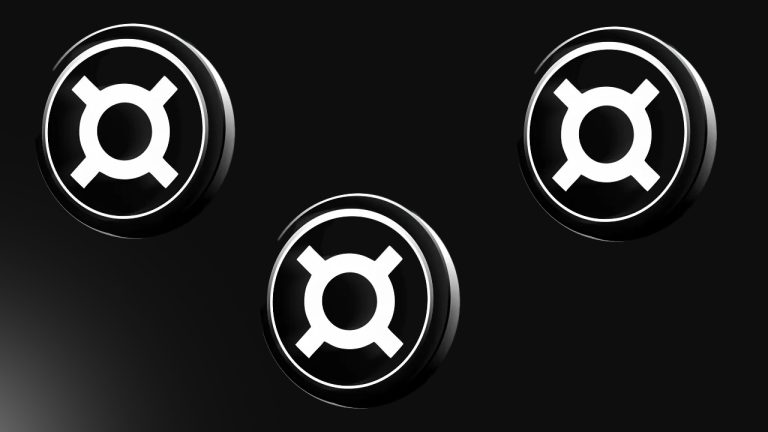 Frax Finance has launched the Frax Name Service (FNS), a decentralized identity service that allows users to register unique names on the Frax blockchain. Frax Finance Expands Ecosystem With Launch of Frax Name Service Frax Finance has introduced the Frax Name Service (FNS), a decentralized identity service designed specifically for the Frax ecosystem. FNS is […]
Frax Finance has launched the Frax Name Service (FNS), a decentralized identity service that allows users to register unique names on the Frax blockchain. Frax Finance Expands Ecosystem With Launch of Frax Name Service Frax Finance has introduced the Frax Name Service (FNS), a decentralized identity service designed specifically for the Frax ecosystem. FNS is […]

Cybercrime is a growing scourge that shows no signs of slowing down anytime soon without a serious game changer to stem the tide.
Cybercrime losses reach new highs every year, and some experts think that while blockchain technology might not be the silver bullet that could stop it, mainstream adoption could definitely help.
Cybercrime can take many forms, including ransomware attacks, identity fraud, data theft and phishing campaigns. According to cybersecurity research firm Cybersecurity Ventures, cybercrime losses around the world are estimated to reach $10.5 trillion annually by 2025.
The first decentralized blockchain, Bitcoin (BTC), was launched in January 2009 along with its associated cryptocurrency. Security features such as cryptography, decentralization and consensus are built into the tech.

Over half a million people are already on the waitlist for Humanity Protocol’s public testnet launch, expected to take place in the back half of 2024.
Decentralized identity solution Humanity Protocol is officially a unicorn after a recent $30 million raise lifted its valuation to $1 billion.
The $30 million Seed Round was led by Kingsway Capital, with participation from Animoca Brands, Blockchain.com, Hashed, Shima Capital and 20 other investors, Humanity Protocol wrote in a May 15 Medium post.w
Humanity Protocol plans to use the funds to expand its product development unit as the firm prepares for its public testnet launch in the second half of 2024.

The new IDs will allow users to prove they are unique humans without revealing personal information on websites.
Crypto unicorn Worldcoin has launched a waitlist for its “World ID” software development kit (SDK) — which will allow websites to verify the uniqueness and humanness of its users without storing their personal information.
The company has also launched the World ID software itself, allowing end users to obtain their "World ID" immediately, according to a March 14 announcement on the Worldcoin website.
Worldcoin is co-founded by Sam Altman, who also co-founded OpenAI.
Introducing World ID, a new privacy-first digital identity that brings global proof of personhood to the internet.
— Worldcoin (@worldcoin) March 14, 2023
Find out more and sign up for the SDK ⬇️https://t.co/jD7ztwbeGY
According to the announcement, World ID is a “global digital passport” that each user is able to store locally on their phone. This ID will allow users to prove that they are not bots, but without needing to provide phone numbers or other identifying information to the websites they log into.
The ID is attached to a cryptographic “proof of personhood” that uses Zero-Knowledge (ZK) proofs to obscure the user’s personally identifying data. This means that it allows users to verify their identities without revealing the personal information used to make the verifications, it said.
Users can obtain a World ID right now, without waiting on websites to implement the new standard.
Phone verification is available “in most countries for users and developers starting today” and iris verification is available in “Argentina, Chile, India, Kenya, Portugal and Spain, as well as [through] demos at blockchain and identity conferences” the firm explained.
Worldcoin has also launched a waitlist for the protocol’s software development kit (SDK). When it becomes available, the SDK will allow developers to integrate with the World ID system to screen out bots from their apps.
A Worldcoin spokesperson told Cointelegraph that the company hopes its protocol will help provide ID to millions of people throughout the world, even in areas where traditional forms of ID are difficult to obtain, stating:
“Artificial intelligence is presenting new opportunities across all industries and World ID aims to bring global proof of personhood to the internet."
The spokesperson noted that over 50% of the world's population lacks verifiable legal identification, and that Worldcoin is attempting to address this via a privacy-first, decentralized means.
"The World ID SDK beta makes web, mobile, and on-chain integrations fast and simple and we are excited to see developers from every corner of the world build upon this powerful new primitive," the spokesperson added.
Related: Polygon launches decentralized ID product powered by ZK proofs
Worldcoin launched in October 2021 by giving away cryptocurrency in exchange for iris scans. According to Worldcoin, these scans produced numbers that could be tied to a user’s identity, but no image of the scans was stored.
In December 2015, the first Worldcoin ATM was implemented in Bratislava, Slovakia, when operator Cryptodiggers.eu decided to offer the coin in its ATM alongside Bitcoin.

Equifax, which suffered a huge data breach in 2017, has partnered with privacy-centric blockchain company Oasis Labs for a decentralized ID offering for Web3 companies.
Credit reporting company Equifax, known for suffering from one of the largest customer data breaches to date, has partnered with blockchain company Oasis Labs to build a Know Your Customer (KYC) solution.
Equifax and Oasis said on Oct. 26 that the latter would be building a decentralized identity management and KYC solution for the industry on Oasis’ platform which will leverage Application Programming Interfaces (APIs) from Equifax to help with checks and user identification.
The announcement made no mention of the exact technology which will underpin this offering and Cointelegraph’s request for comment was not immediately responded to by either company.
Both firms believe there hasn’t been a KYC solution tailored to Web3 with “strong privacy protection” and their proposed offering is set to address this gap by issuing anonymized KYC credentials to individuals’ wallets.
This credential will be continuously updated according to the announcement and Oasis pledges its “privacy-preserving capabilities” will ensure data is processed in confidence whilst maintaining a trail on the company's blockchain.
Web3 firms offering similar solutions based around decentralized identity are Dock and Quadrata with each offering a product built around decentralized identity.
The partnership could have some Web3 natives concerned considering the significant data breach Equifax suffered in 2017. Around 163 million worldwide private records were compromised with 148 million being U.S. citizens making it the 13th largest data breach in U.S. history according to cybersecurity company UpGuard.
Related: Zero-knowledge KYC could solve the privacy vs compliance conundrum — VC partner
Attackers targeted a third-party web portal with a known vulnerability that was patched but Equifax had failed to update to the latest version, the hackers gained access to the firms' servers for around two and a half months all the while siphoning millions of records containing sensitive information.
It was reported that Equifax spent $1.4 billion on legal fees and strengthening its security posture following the incident. The U.S. Federal Trade Commission and Consumer Financial Protection Bureau issued a $700 million fine in July 2019 which the firm settled.
 In a world where censorship is growing and the right to privacy is being undermined, Web3 — the next iteration of the world wide web — looks to some like the solution users of online platforms are waiting for. As some pioneering Web3 products and solutions have demonstrated, when users are in control, there are […]
In a world where censorship is growing and the right to privacy is being undermined, Web3 — the next iteration of the world wide web — looks to some like the solution users of online platforms are waiting for. As some pioneering Web3 products and solutions have demonstrated, when users are in control, there are […]